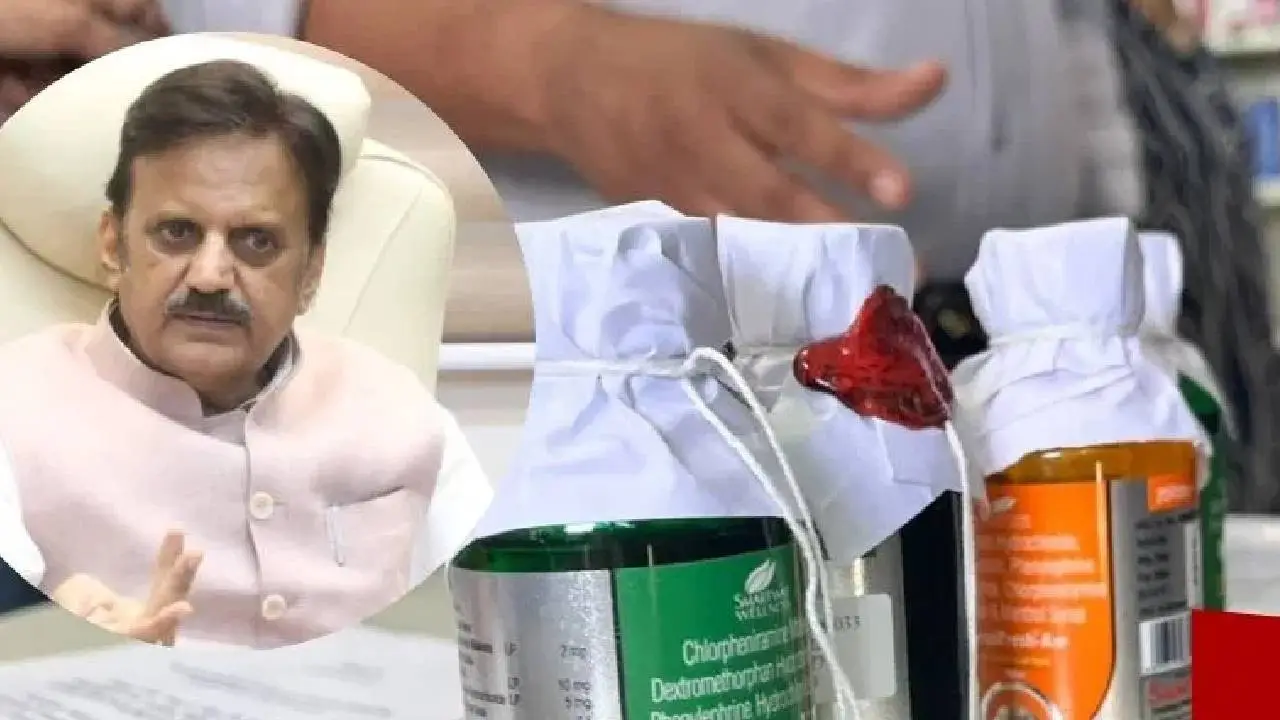
Chhindwara Cough Syrup
National News: Chhindwara Cough Syrup: So far, 16 children have died in the Chhindwara district of Madhya Pradesh due to cold syrup. On Tuesday, two-year-old Jeyusha Yaduvanshi died of kidney failure. Jeyusha was a resident of Junnardev. This child was also treated by Dr. Praveen Soni. Jeyusha was undergoing treatment at GMC Hospital in Nagpur. In Chhindwara alone, this cough syrup has claimed the lives of 16 children. In Pandhurna and Betul combined, 19 children have died.
Meanwhile, several important revelations have emerged regarding the negligence of the MP Health Department… In fact, the series of deaths from Coldrif syrup began in September. The first death occurred on September 3rd. A seven-year-old girl named Ajia Khan died after suffering kidney failure.
The chart of innocent deaths shows a disturbing timeline: one death on September 3, followed by two on September 4, and then one each on September 5, 6, 7, and 8, with the September 8 case reported in Betul district. Another death occurred on September 12 in Pandhurna district, followed by one each on September 13, 15, 19, and 23. Sitab recorded one more death on September 26, followed by another on September 27. October also saw multiple tragedies with one death on October 1, another on October 4, one on October 6, and one more on October 8 reported again from Betul district.
Meanwhile, Health Minister Rajendra Shukla has yet to reach Chhindwara. He initially gave the Coldrif syrup company a clean chit, stating that the allegations of deaths due to the syrup were baseless. Meanwhile, Rajendra Shukla continued to celebrate festivals in his constituency and did not call any departmental meetings. State Health Minister Narendra Shivaji Patel also did not hold any meetings. When called, he continued to lie. Patel claimed he was not in Bhopal, but was actually in Bhopal. He, too, has not reached Chhindwara.
Not only this, even Chhindwara's Minister in charge, Rakesh Singh, hasn't visited Chhindwara to date. Drug Controller Dinesh Maurya has been on vacation. When samples arrived at the state lab, they tested only those drugs that were less susceptible. Tests for the deadly cold-resistant strain were postponed for two days. Negligence was also observed at the level of Health Department Secretary Sandeep Yadav. He neither took any serious action nor issued guidelines in time. Even after cold-resistant strains were banned in Chhindwara, the state government did not ban it.It's also worth noting that between September 3rd and
September 27th, 12 deaths occurred in Chhindwara alone. All of these children were treated by Dr. Praveen Soni. The data was concealed, with only six of the 12 deaths reported. On September 29th, the Chhindwara Collector issued a statement for the first time, verbally banning cold drinks.
Who approved the Coldrif company in Tamil Nadu, which manufactures the syrup, and who prepared the investigation report. Why didn't the drug department in Madhya Pradesh investigate this syrup? According to sources, arrested doctor Praveen Soni had a deal with the Coldrif company. The profit margin was 80 to 90 percent. This was the reason Praveen Soni continued to prescribe this syrup even after the children's health deteriorated.
The Tamil Nadu company made a deal with a dealer in Jabalpur. All the syrup went to just one dealer. The raid was conducted after the children's deaths. Even today, the administration doesn't have an account of 484 cold-refrigerate syrups. Where did this syrup go? Are other children drinking it? There's also a suspicion that several drug department officials are also under investigation.
Children died in Chhindwara. The administration did not conduct postmortems on any of the children. The argument was made that the children's parents did not provide permission, but postmortems were later conducted by exhuming graves. The question also arises as to why Collector Sheelendra Singh, who was the first to ban the poisonous syrup in Chhindwara, was transferred.
He received over 150 calls from Bhopal after the syrup was banned. The new collector spent two days trying to understand the situation. Most of the affected families are poor. They sold their entire household possessions to pay for treatment, but the government provided only four lakh rupees, while the treatment actually cost eight to ten lakh rupees. Children on ventilators are still incurring a daily cost of 40,000 rupees.





Copyright © 2026 Top Indian News
